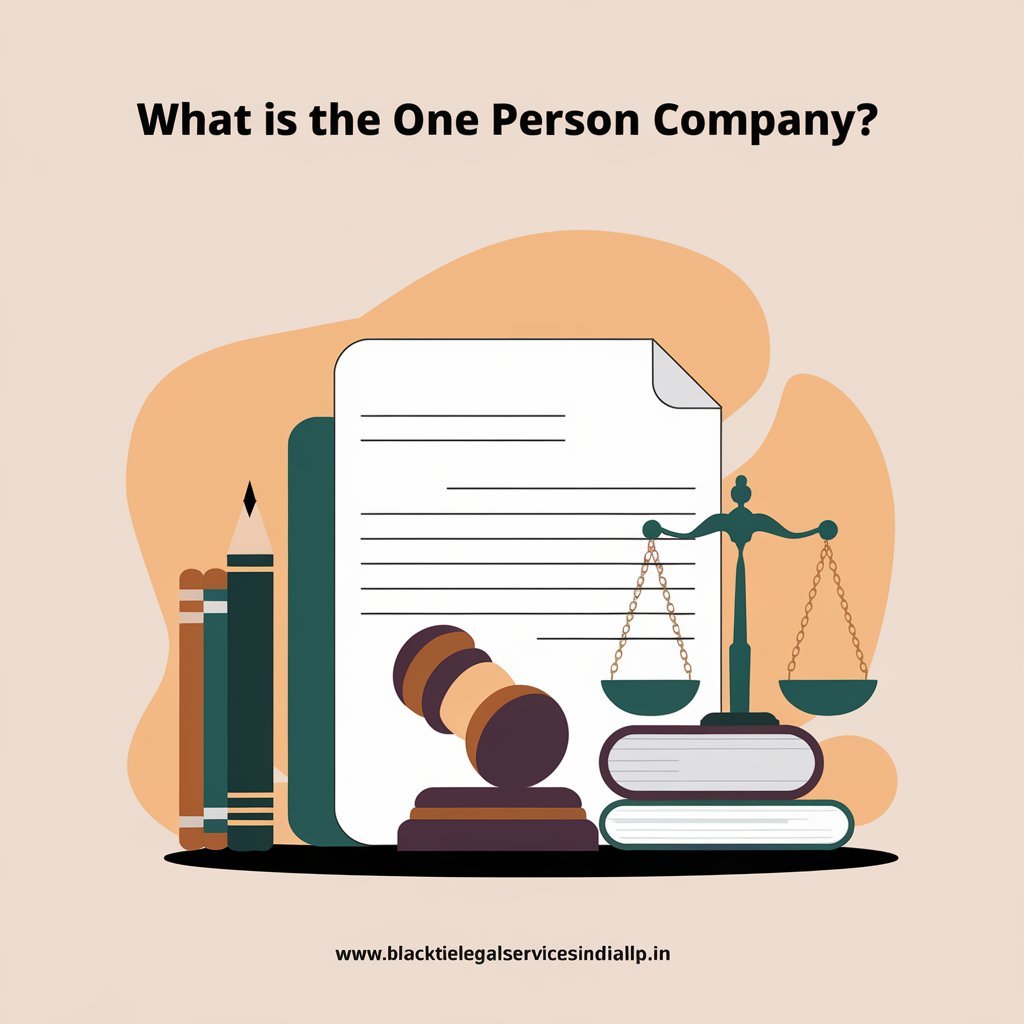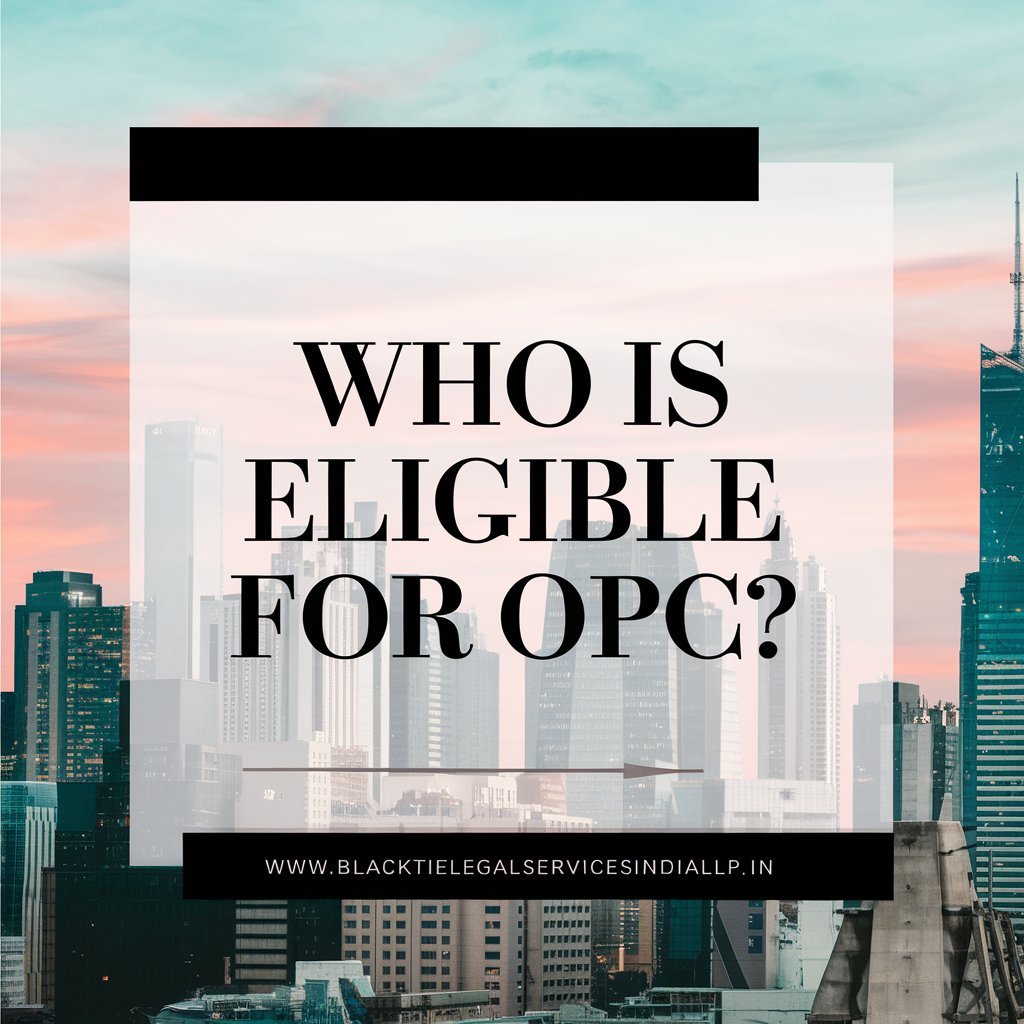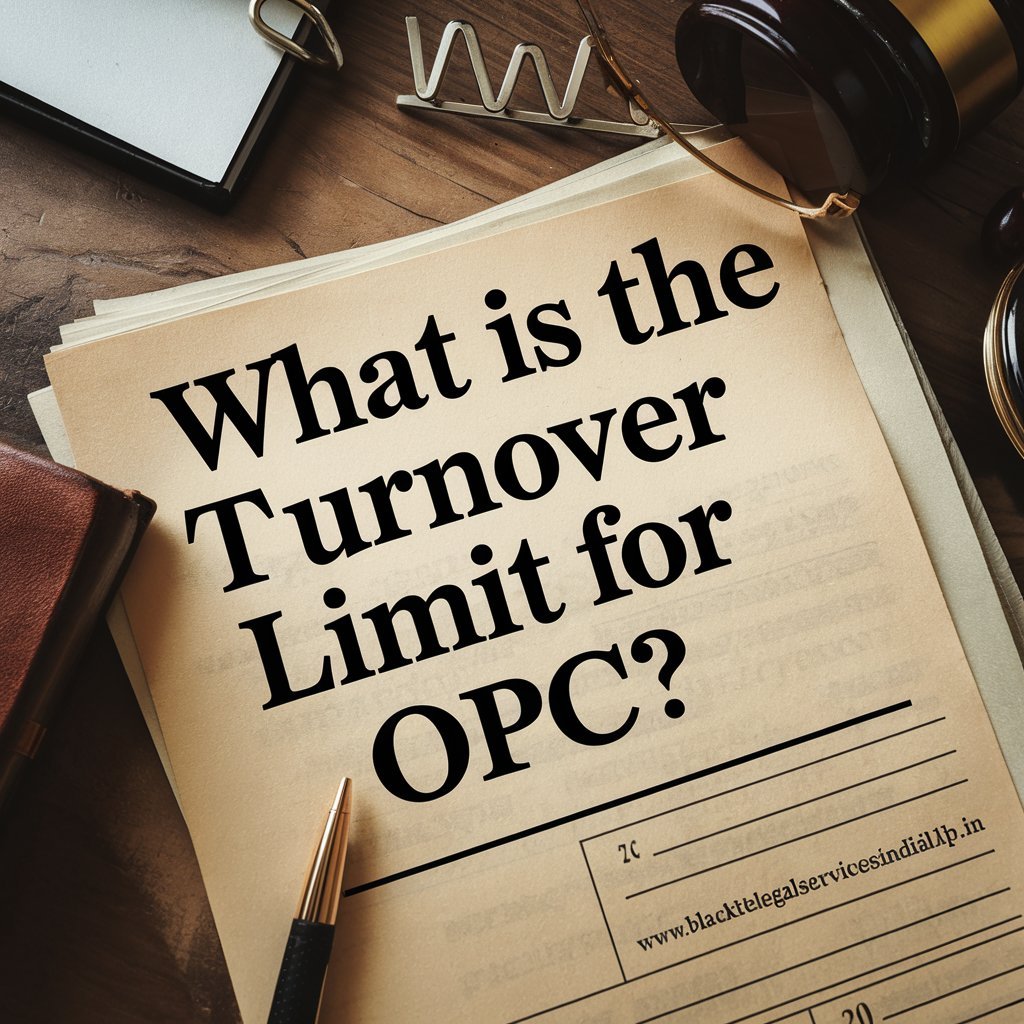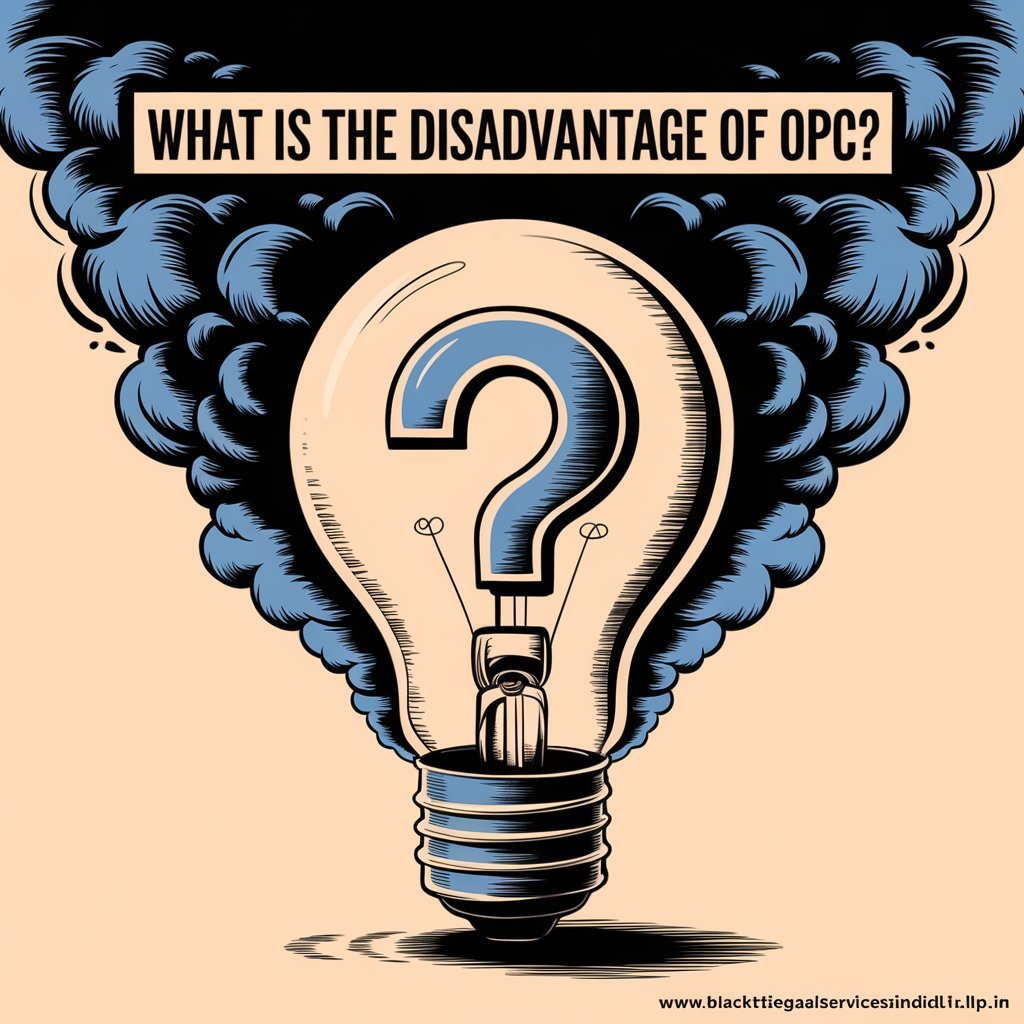Starting out is indeed a big step, especially if you are going solo. Traditionally, entrepreneurs could choose between forming a private company or running their venture as a sole proprietorship.
This is no longer the case, A person Company is suitable for solo entrepreneurs who want legal protections like a corporation, but with minimal hassles, introduced in India under the Companies Act 2013. The benefits of developing an OPC include
Through this blog, we want to tell everyone that we are going to discuss in detail the top 19 benefits of one person company which no one has told you yet, so you are requested to read this blog post completely so that you can understand it completely.
- What is the One Person Company?
- What are the Top 19 Benefits of One Person Company?
- Limited Liability
- Perpetual Succession
- Easy Funding
- MSME Benefits
- Separate Legal Entity
- Easy Incorporation
- Legal Status
- Decision-Making
- Tax Benefits
- Compliance Requirements
- Efficient Management
- Single Owner
- Taxation Considerations
- Annual Return Filing
- Benefits for Small-Scale Industries
- Easy Credit Facilities
- Minimum Requirements
- Owning Property
- Tax Flexibility and Savings
- Who is Eligible for OPC?
- What is the Turnover limit for OPC?
- What is the Disadvantage of OPC?
- In Conclusion
- FAQs
What is the One Person Company?

OPC is a type of business entity that was first introduced in India under the Companies Act, of 2013, and it facilitates the incorporation and conduct of business by a single person with limited liability.
OPC is completely different from a sole proprietorship, as it is independent of its owner as a separate legal entity, whereas in the case of a sole proprietorship, the business and the owner are essentially one and the same.
In an OPC, the owner of the company is its sole shareholder as well as its director. This means that the individual has complete control of the decision-making process.
OPC is developed for solo entrepreneurs who want to enjoy limited liability and corporate recognition without the need for any shareholders or partners.
Ifr you want to know more about the one person company than just click below:
What are the Top 19 Benefits of One Person Company?
We have mentioned all the names of the total top 30 benefits of one person company in a good way below:
- Limited liability
- Perpetual succession
- Easy funding
- Opc can avail of MSME benefits
- Separate legal entity
- Easy incorporation
- Legal status
- Decision-making
- Tax benefits
- Compliance requirements
- Efficient management
- Single owner
- Taxation considerations
- Annual return filing
- Benefits for small-scale industries
- Easy credit facilities
- Minimum requirement
- Owning property
- Tax flexibility and savings
Limited Liability
OPCs protect the owner’s personal assets as they come with limited liability. In case of financial losses or legal issues, the owner is liable only to the extent of his level of investment in the business.
Perpetual Succession
An OPC also ensures the continuity of the business even upon the death or incapacity of the owner. During the process of company registration, the nominee takes over the business, and the business continues to run seamlessly.
Easy Funding
An OPC structure increases credibility and provides better access to finance. Banks and financial institutions consider lending to OPCs due to their separate legal existence and regulated status.
MSME Benefits
OPCs can avail of several benefits under the Micro, Small, and Medium Enterprises (MSME) Development Act. This includes subsidies, easier access to credit, and lower interest rates on loans, making it highly favorable for small businesses.
Separate Legal Entity
It can enter into contracts, own property, and file suits in its own name, being a separate legal entity from the owner. This provides more credibility when dealing with suppliers, customers, and lenders.
Easy Incorporation
Minimal documentation and procedures make setting up an OPC relatively easy. The entire process is not even a matter of a week, and hence suitable even for a solopreneur.
Legal Status
Being under the OPC structure, the owner enjoys all the legal status under the Companies Act, 2013. This status gives the company a better image and makes it trustworthy to customers, suppliers, and investors.
Decision-Making
It requires only one person to lead the business. The owner is able to make quick and streamlined decisions and can make independent business decisions without consulting other directors or shareholders; thus, it enhances the agility of operations.
Tax Benefits
OPC enjoys several tax benefits. Corporate taxation can be advantageous compared to personal taxation subject to sole proprietors. OPC can also claim deductions in respect of its business expenses, depreciation, and all other allowable deductions.
Compliance Requirements
The compliance burden of an OPC is more lenient than that of larger corporations. These organizations are not required to hold an Annual General Meeting (AGM) or conduct board meetings, thereby reducing a lot of paperwork and related administrative costs that are usually associated with other structures of corporate organization.
Efficient Management
The management is very efficient as there will only be a single owner. There will be no need to coordinate with other directors or shareholders, making it easier to formulate strategies and execute decisions.
if you want to build a one person company than you can get the easy registration by just clicking here
Single Owner
The OPC model offers a single person a business, with complete control, without partners and co-directors. This is a type of arrangement that is suitable for entrepreneurs who want their businesses to be completely owned and controlled by them.
Taxation Considerations
On the other hand, a corporation is less likely to be taxed than a sole proprietorship, and this becomes more important with the tax benefits of the corporate tax rate. This type of OPC entity will also enable owners to deduct various business expense-related items, thereby saving potential taxes.
Annual Return Filing
Annual returns are mandatory for an OPC entity, and the process is simpler than for larger companies. Compliance requirements are less, and processes are simpler, and hence filing of annual returns can be done.
Benefits for Small-Scale Industries
OPCs can also be registered as MSMEs. This brings many more benefits including subsidies and easy loans. This will greatly benefit small-scale operations.
Easy Credit Facilities
OPCs will also find it easier to get credit facilities as compared to sole proprietorships. Banks are more likely to lend to OPCs as the legal structure, identity, and regulation compliance of an OPC is different from a one-person business.
Minimum Requirements
Since OPCs have very few formalities that need to be fulfilled for their incorporation, such as a minimum of one shareholder and one nominee, forming and managing an OPC becomes relatively easier.
Owning Property
An OPC can hold assets in its own name, which is separate from the owner’s personal assets. These separations between personal and corporate assets help keep things clear. It is easier both legally and financially.
Tax Flexibility and Savings
Under corporate tax structures, OPCs can maintain taxes more effectively. Tax planning can help save money to pay taxes by cutting down business-related expenses.
If you want to know more about the benefits of one person company than just click below:
Who is Eligible for OPC?

To form a One Person Company (OPC) in India, the following eligibility criteria must be met:
- Individual Person: OPC can be formed by any natural person, not a legal entity like a company or partnership. They must be resident Indians.
- Residence Conditions: The individual must have resided in India for at least 182 days in the previous financial year.
- Directorship Restriction: Only one individual can incorporate an OPC, and thus you cannot incorporate more than one OPC as the sole founder.
What is the Turnover limit for OPC?

An OPC can continue to be so if it fulfills the following criteria:
- Turnover limit: The turnover limit of an OPC is ₹2 crore per annum.
- Paid-up capital shall not exceed ₹50 lakh: The paid-up capital of an OPC shall not exceed ₹50 lakh.
If the OPC exceeds such limit in terms of turnover or capital, it must be converted into a private limited company or any other type of business enterprise within such prescribed time limit.
What is the Disadvantage of OPC?

There are many benefits of a One Person Company, so we explain a disadvantage of which we have explained to you below:
- Limited Growth Potential: When the turnover exceeds ₹2 crore or the paid-up capital exceeds ₹50 lacks, the OPC has to be converted into a private limited company, which involves additional compliance and administrative work.
If you want to know more about the disadvantages or drawbacks of one person company than just click below video:
In Conclusion

A personal company is, in fact, an excellent channel for those wanting to start their own business but would like to maintain limited liability, ease of management, and tax benefits.
It suits the best of the businessmen who desire to have a proper balance between flexibility and legal protection.
The benefits of one person company give entrepreneurs a chance to register a credible and sustainable business structure that makes room for future growth and expansion.
In the end, we hope that you all have learned a lot about all the benefits of One Person Company given inside this blog post.
We also hope that you get the benefits of a one person company and gain a lot of knowledge about this guide, which may come in handy sometime in the future.
FAQs
Q1. What are the benefits of OPC vs Pvt Ltd?
Compliance is more straightforward in an OPC: For example, a private limited company requires at least two shareholders and two directors, while an OPC must operate with only one shareholder and only one director. The owner of an OPC also has full control without any interference from outside parties.
Q2. What are the benefits of OPC vs sole proprietorship?
The liability involved with an OPC is limited. In other words, the owner’s personal assets are safe or protected. It is also separate from the owner- an even more solid business that is reliable to customers and investors compared to other businesses that do not fall under an OPC.
Q3. Is OPC a good option?
An OPC is an excellent option for a solo entrepreneur looking for a package of limited liability protections and the benefits of a corporate structure without the complexity of a private limited company.
Q4. What are the tax advantages of OPC?
An OPC enjoys corporate tax benefits and tax planning through director salaries, while sole proprietorships are taxed at individual rates.
Q5. What is better LLP or OPC?
If a company has more than one partner, LLP is the preferred option for them, as it makes the management of the company flexible and safeguards liability. An OPC is ideal for a sole entrepreneur as it can provide full control and limited liability.


Add a Comment